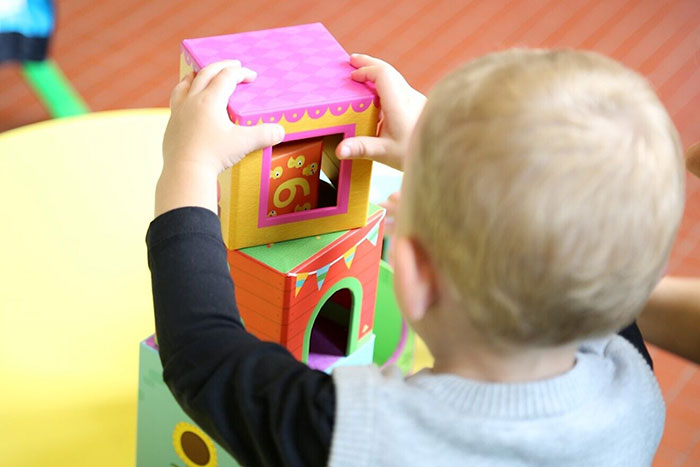A possible preschool student. Photo courtesy of Carole LR/Pixabay.
By ZEV HURWITZ
JNS
Our oldest son had just turned 3 when we started getting calls from his Jewish day school about his behavior. He was struggling with transitions between activities, was frequently “eloping” from the classroom when he was overwhelmed and was expressing discontent with his fists rather than his voice. He quickly exhausted the school’s resources for students with learning differences, with one behavioral staffer telling my wife and me point-blank: “He’s used up all the tools in my arsenal, and I don’t know how to help him.”
Getting Needed Support?
Soon, he wasn’t allowed at school without a shadow and a game plan from a behavioral psychologist, both of which we had to pay for out-of-pocket. These requirements were not particularly affordable, especially considering that these costs were in addition to tuition dues. On top of the added expense, neither intervention made much of an impact. Eventually, we were asked not to return after winter break.
After being deemed eligible for services for “behaviors associated with Attention-Deficit/Hyperactivity Disorder,” the Los Angeles Unified School District’s Individual Education Plan process opened up several doors for us, including enrollment in a therapeutic private school for the remainder of the school year, and now, a slot in an integrative, hybrid transitional kindergarten class at a nearby LAUSD school.
Raising an observant child who attends public school is not without Jewish learning opportunities—my 4-year-old knows that he can’t eat the hot dogs in his LAUSD cafeteria because of character-building exercises and Jewish learning experiences that cannot be replicated at Jewish day school.
But at the end of the day, being in a Jewish school that matches our values wasn’t financially compatible with getting our son the support and resources he needs to learn in a classroom setting. Short of a lottery win, there wasn’t a way for us to keep him in a Jewish day school while servicing his behavioral and emotional needs.
Calif. State Funding
It was only last month that the Ninth Circuit Court of Appeals ruled that California state funds can be used to offer special-education services in religious private schools. The 3-0 decision in Loffman v. California Department of Education enables Jewish schools to begin acquiring licensure to offer special-education services using state funding.
Originally brought to court by three families in similar situations to mine, along with a pair of local Jewish schools, the case focused on challenging a “nonsectarian” requirement for private schools that disqualifies Jewish or other faith-identified private schools from offering such services on the state’s dime. While Loffman should be celebrated for recognizing a discriminatory violation of the First Amendment’s Free Exercise Clause, the ruling also opens the door for Jewish day schools to manage rising operating costs—and hopefully mitigate tuition increases in the process.
Teach Coalition
Loffman was championed by the Teach Coalition—an advocacy group focused on making Jewish day-school education more affordable by identifying new funding opportunities. The organization is a project of the Orthodox Union and operates in California with support from the Jewish Federation Los Angeles.
The need for affordability can’t be understated. The Federation’s 2021 Study of Jewish LA found that one in five Jewish Angeleno families saw finances as a barrier to entry for Jewish institutions like day schools. The same study found that more than half of families with children who did not attend Jewish day schools but had considered them cited cost as the chief deterrent. (Notably, 7% cited the inability of Jewish day schools to address students’ special needs.)
In other states, Teach Coalition has succeeded in advancing more comprehensive models for state funding for Jewish day schools, including state-sponsored STEM instruction, nutrition and classroom technology. Loffman is particularly significant in California, where the political environment makes other forms of state funding for Jewish schools more challenging to obtain. It’s hard to imagine legislators (or voters, for that matter) in the Golden State approving a comprehensive school voucher program.
Loffman, should it hold, clears a path for institutions to include in their budgets state funds for special education services, offering relief and minimizing or eliminating cost increases to families. In addition to the prospect of funding for special-education services, California has also generously funded nonprofit security programs, including for day schools. It’s critical that our Jewish day schools, as they begin to offer new special-needs services, commit to keeping tuition levels stable alongside the expanded offerings to ensure affordability and accessibility for families.
When the stars align, we’d like to have our son return to Jewish day school to continue his education. The appellate court ruling makes that return more likely and, hopefully, more affordable.







